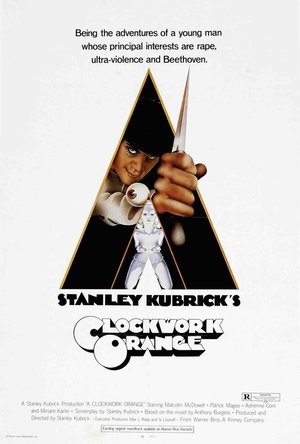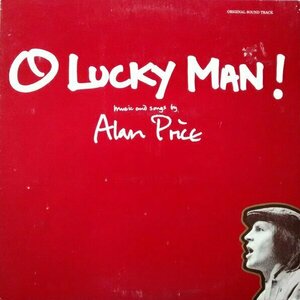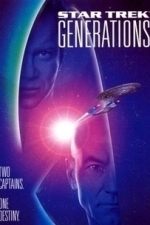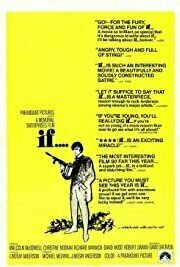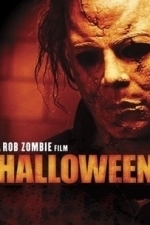Search
Nicholas Cage recommended A Clockwork Orange (1971) in Movies (curated)
Rob Zombie recommended A Clockwork Orange (1971) in Movies (curated)
Anand Wilder recommended O Lucky Man! by Alan Price in Music (curated)
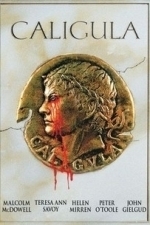
Caligula (1979)
Movie Watch
The rise and fall of the notorious Roman Emperor Caligula, showing the violent methods that he...
Awix (3310 KP) rated Star Trek Generations (1994) in Movies
Jun 6, 2018
Seventh big-screen Trek has a kind of contractually-obligatory, cobbled-together feel to it: everyone was expecting them to do something where the old lot met the new lot, so they did, even if it seems like they couldn't come up with much of an actual story to go with it. Various attempts are made to give this story added significance - Data gets his emotion chip, the ship blows up, Worf gets a promotion, recurring characters are killed off - but it all boils down to putting Picard and Kirk together, which happens late on and only quite briefly (that said, the two of them don't exactly have chemistry, so maybe this is for the best). William Shatner is oddly subdued as James T and the writers don't have the best handle on the character, either.
Still, looks nice and Malcolm McDowell is always good fun as a scenery-gobbling bad guy. But it adds to the impression that, as far as Paramount are concerned, the Trek movies in particular are more about maintaining a profitable franchise than actually doing something creatively interesting.
Still, looks nice and Malcolm McDowell is always good fun as a scenery-gobbling bad guy. But it adds to the impression that, as far as Paramount are concerned, the Trek movies in particular are more about maintaining a profitable franchise than actually doing something creatively interesting.
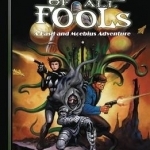
The Adventures of Basil and Moebius: Volume 4: The Fate of All Fools
Ryan Schifrin and Richard Lee Byers
Book
This is it -- the culmination of dozens upon dozens of hair-raising, pulse-pounding, globe-trotting...
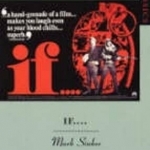
If....
Book
Lindsay Anderson's film if...(1968), starring Malcolm McDowell as a schoolboy who leads a guerilla...
Neil Gaiman recommended If... (1968) in Movies (curated)
Chris Sawin (602 KP) rated A Clockwork Orange (1971) in Movies
Jun 15, 2019
Alex DeLarge (Malcolm McDowell) is your average eighteen year old boy...if by average, you mean he fully embraces the old ultraviolence and wanders the streets with his three droogs causing havoc and doing whatever he likes; skipping school, breaking and entering, rape, and assault is just another average day in Alex's life. However, when a planned rape turns into an "accidental" murder, things start to turn fowl for Alex. His droogs turn on him and he winds up being caught by the police. He is then taken to a correctional facility where he spends the next few years, puts on the front that he's fully embraced the bible and that he's now a changed man. But when word makes round of the experimental Ludovico treatment, Alex realizes his chance at freedom and jumps through the proper hoops to get out of the penitentiary he finds himself in and get into the experimental facility where he can be "cured."
Alex is promised that he'll be a free man within a fortnight. The treatment consists of a drug known as Serum 114 being injected into the patient before making them sit through short films such as a man being beaten to a pulp, a woman being the sexual victim of several men, and a Nazi concentration camp film set to the soundtrack of Beethoven's ninth symphony. Alex begins to feel sick during the films and the doctors insist that it's part of the cure. Alex's love for music and Beethoven in general become one of the adverse effects of the treatment as the ninth symphony has the same effect on Alex as the urge to beat or rape someone would. Alex soon comes to realize that you can never go home again and that being a free man isn't all it's cracked up to be, especially after a treatment such as this.
It took 37 years after its initial theatrical release and 24 years of being alive on this planet (the original viewing of this film was in 2008) to finally get around to seeing A Clockwork Orange. The film starts and it makes the viewer feel like they've missed something entirely that everyone else already knows about, but as the film unravels it snowballs into a unique vision of cinema. There are shades of Altered States in A Clockwork Orange, but A Clockwork Orange feels much more polarizing in its presentation in comparison. Stanley Kubrick tries to shine this spotlight of beauty onto the most heinous of actions as the film’s classical score becomes the soundtrack to ferocious and almost inhuman desires. This is Kubrick’s adaptation of the 1962 novel of the same name written by Anthony Burgess and it’s incredible how the film is able to remain captivating over a two hour period.
The film has a stunning restoration on the two-disc Blu-ray anniversary edition. Kubrick always had a brilliant eye when it came to perspective and camera placement; the majority of that could be contributed to Kubrick’s frequent collaborations with cinematographer John Alcott. The long hallway shots and close-ups on memorably haunting facial expressions are some of the most significant scenes in the film. A Clockwork Orange is loaded with vibrant colors that make every frame jump off the screen despite the film nearing half a century in age. This was the first film to take advantage of Dolby Digital surround sound, which contributes to the film sounding as good as it does.
Even with Stanley Kubrick as director, A Clockwork Orange wouldn’t be the same without Malcolm McDowell. McDowell fits the Alex DeLarge role as perfectly as Robert Downey Jr fits Tony Stark; these actors are these characters. The speeches McDowell gives in the film along with how traumatized he is after the treatment process are two of the biggest takeaways after viewing the film. This was one of McDowell’s first on-screen roles, which is surprising given how enthralling he is. You will never think of, “Singin’ in the Rain,” the same way again after viewing A Clockwork Orange.
A Clockwork Orange is a unique expedition into insanity no matter how you look at it. The dialogue is unusual and the characters are this fantastic blend of bizarre and diabolical, but the film is consistently engrossing and never seems to lag. Prior to 1986, the A Clockwork Orange novel was published in the US without its final chapter and that’s the version of the film Kubrick adapted. Anthony Burgess praised Kubrick’s version of the film despite this, which is more than what Stephen King did with Kubrick’s adaptation of The Shining. Every shot in A Clockwork Orange grabs your attention largely in part to how it’s presented or the colors that leap off the screen. The novel is written in a way that’s difficult to read and that often translates on-screen. Like most of Kubrick’s work, A Clockwork Orange is for a specific audience. It is perhaps what Malcolm McDowell is known best for and probably shouldn’t be recommended to just anyone since it would likely soar over a modern day moviegoer. This isn’t the type of film to have on in the background while you text or play games on your phone. Ultraviolence is something you have to embrace and give your undivided attention to.
This is viewed by some as one of the greatest sci-fi films ever by some, but it isn’t any less pretentious than the rest of Stanley Kubrick’s work. A Clockwork Orange is mesmerizing with a performance from Malcolm McDowell that leaves a long lasting impact, but its affinity to utilize difficult to decipher jargon, nonstop innuendo being slammed into your face, and overuse of animalistic violence shackles the film from being more appealing to a wider audience. From a personal standpoint, A Clockwork Orange is one of Kubrick's best but it's easy to understand why it wouldn't be for everyone.
Alex is promised that he'll be a free man within a fortnight. The treatment consists of a drug known as Serum 114 being injected into the patient before making them sit through short films such as a man being beaten to a pulp, a woman being the sexual victim of several men, and a Nazi concentration camp film set to the soundtrack of Beethoven's ninth symphony. Alex begins to feel sick during the films and the doctors insist that it's part of the cure. Alex's love for music and Beethoven in general become one of the adverse effects of the treatment as the ninth symphony has the same effect on Alex as the urge to beat or rape someone would. Alex soon comes to realize that you can never go home again and that being a free man isn't all it's cracked up to be, especially after a treatment such as this.
It took 37 years after its initial theatrical release and 24 years of being alive on this planet (the original viewing of this film was in 2008) to finally get around to seeing A Clockwork Orange. The film starts and it makes the viewer feel like they've missed something entirely that everyone else already knows about, but as the film unravels it snowballs into a unique vision of cinema. There are shades of Altered States in A Clockwork Orange, but A Clockwork Orange feels much more polarizing in its presentation in comparison. Stanley Kubrick tries to shine this spotlight of beauty onto the most heinous of actions as the film’s classical score becomes the soundtrack to ferocious and almost inhuman desires. This is Kubrick’s adaptation of the 1962 novel of the same name written by Anthony Burgess and it’s incredible how the film is able to remain captivating over a two hour period.
The film has a stunning restoration on the two-disc Blu-ray anniversary edition. Kubrick always had a brilliant eye when it came to perspective and camera placement; the majority of that could be contributed to Kubrick’s frequent collaborations with cinematographer John Alcott. The long hallway shots and close-ups on memorably haunting facial expressions are some of the most significant scenes in the film. A Clockwork Orange is loaded with vibrant colors that make every frame jump off the screen despite the film nearing half a century in age. This was the first film to take advantage of Dolby Digital surround sound, which contributes to the film sounding as good as it does.
Even with Stanley Kubrick as director, A Clockwork Orange wouldn’t be the same without Malcolm McDowell. McDowell fits the Alex DeLarge role as perfectly as Robert Downey Jr fits Tony Stark; these actors are these characters. The speeches McDowell gives in the film along with how traumatized he is after the treatment process are two of the biggest takeaways after viewing the film. This was one of McDowell’s first on-screen roles, which is surprising given how enthralling he is. You will never think of, “Singin’ in the Rain,” the same way again after viewing A Clockwork Orange.
A Clockwork Orange is a unique expedition into insanity no matter how you look at it. The dialogue is unusual and the characters are this fantastic blend of bizarre and diabolical, but the film is consistently engrossing and never seems to lag. Prior to 1986, the A Clockwork Orange novel was published in the US without its final chapter and that’s the version of the film Kubrick adapted. Anthony Burgess praised Kubrick’s version of the film despite this, which is more than what Stephen King did with Kubrick’s adaptation of The Shining. Every shot in A Clockwork Orange grabs your attention largely in part to how it’s presented or the colors that leap off the screen. The novel is written in a way that’s difficult to read and that often translates on-screen. Like most of Kubrick’s work, A Clockwork Orange is for a specific audience. It is perhaps what Malcolm McDowell is known best for and probably shouldn’t be recommended to just anyone since it would likely soar over a modern day moviegoer. This isn’t the type of film to have on in the background while you text or play games on your phone. Ultraviolence is something you have to embrace and give your undivided attention to.
This is viewed by some as one of the greatest sci-fi films ever by some, but it isn’t any less pretentious than the rest of Stanley Kubrick’s work. A Clockwork Orange is mesmerizing with a performance from Malcolm McDowell that leaves a long lasting impact, but its affinity to utilize difficult to decipher jargon, nonstop innuendo being slammed into your face, and overuse of animalistic violence shackles the film from being more appealing to a wider audience. From a personal standpoint, A Clockwork Orange is one of Kubrick's best but it's easy to understand why it wouldn't be for everyone.
KyleQ (267 KP) rated Halloween (2007) in Movies
Jul 20, 2020
Intense and excessive
Before watching this I had become a fan of both House of 1,000 Corpses and The Devil's Rejects, so I did appreciate Rob Zombie as a filmmaker. But it still seemed like a strange idea to have him direct the remake of Halloween.
This remake is 2 hours long, it's mostly stretched to that length due to the scenes involving 10-year-old Michael.
Daeg Faerch plays the young Mikey, and does well, he's creepy and disturbing. Rob's wife Sheri Moon Zombie of course has a role, here as Mikey's mom, she's fine here as the role fits her well. The problem is everyone else, William Forsythe plays Mike's stepdad who happens to be a disgusting excuse for a human being, as is the bully played by Daryl Sabara. The movie then shifts to events at the asylum. Malcolm Mcdowell plays Dr. Sam Loomis. Mcdowell is a good actor, and he gives a pretty good performance here. But he still pales in comparison to the great Donald Pleasence. The movie than movies to 15-years later.
Scout Taylor Compton plays Laurie Strode, she does good, but I was disappointed that she was introduced making a sex joke. Rob couldn't even let the nerdy final girl be sweet and innocent. Needless to say, others are worse.
The movie has LOTS of profanity which honestly drags down any attempts at actually making characters likable. The sex and nudity have also been ramped up.
The violence is definitely brutal, but that's Zombie's style, I felt that Michael was quite terrifying here. Tyler Mane plays Michael, and his 7-foot tall stature is so intimidating.
Overall, Rob Zombie does a good job at developing the story of Michael Myers, and at making some really intense and brutal death scenes. But he does so at the expense of having likable characters and good dialog. I still like it, but I can understand why others wouldn't.
This remake is 2 hours long, it's mostly stretched to that length due to the scenes involving 10-year-old Michael.
Daeg Faerch plays the young Mikey, and does well, he's creepy and disturbing. Rob's wife Sheri Moon Zombie of course has a role, here as Mikey's mom, she's fine here as the role fits her well. The problem is everyone else, William Forsythe plays Mike's stepdad who happens to be a disgusting excuse for a human being, as is the bully played by Daryl Sabara. The movie then shifts to events at the asylum. Malcolm Mcdowell plays Dr. Sam Loomis. Mcdowell is a good actor, and he gives a pretty good performance here. But he still pales in comparison to the great Donald Pleasence. The movie than movies to 15-years later.
Scout Taylor Compton plays Laurie Strode, she does good, but I was disappointed that she was introduced making a sex joke. Rob couldn't even let the nerdy final girl be sweet and innocent. Needless to say, others are worse.
The movie has LOTS of profanity which honestly drags down any attempts at actually making characters likable. The sex and nudity have also been ramped up.
The violence is definitely brutal, but that's Zombie's style, I felt that Michael was quite terrifying here. Tyler Mane plays Michael, and his 7-foot tall stature is so intimidating.
Overall, Rob Zombie does a good job at developing the story of Michael Myers, and at making some really intense and brutal death scenes. But he does so at the expense of having likable characters and good dialog. I still like it, but I can understand why others wouldn't.
